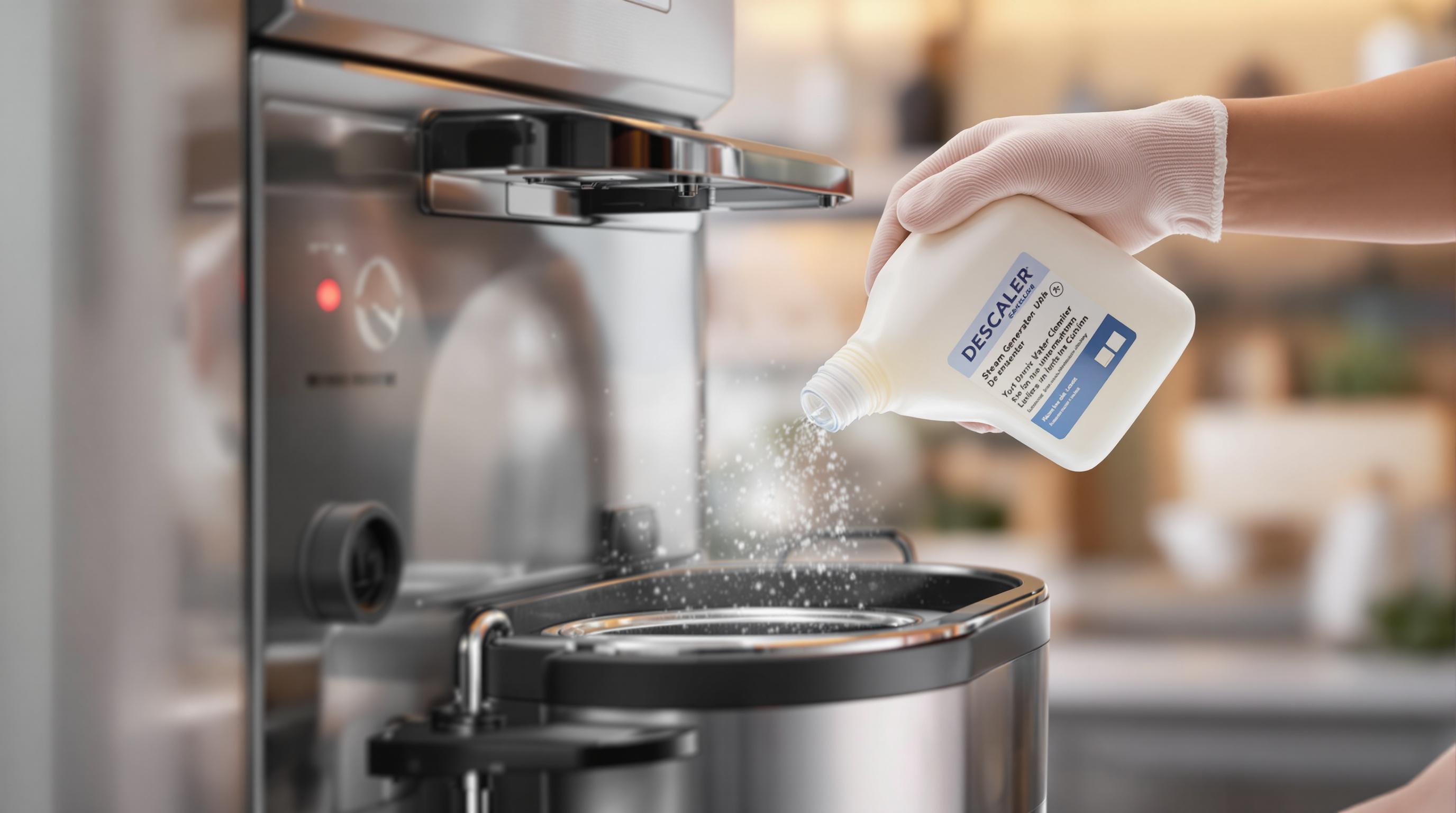Did you know regular sauna use can help strengthen your immune system? Research shows that using a sauna 2-3 times weekly reduces pneumonia risk by 28%, and 4 or more sessions cut it by 37%. Saunas activate heat shock proteins, increase white blood cells, and simulate fever-like conditions to boost your body's defenses. Here’s a quick breakdown of how saunas support immunity:
- Boosts heat shock proteins: Protects and activates immune cells.
- Simulates fever: Increases white blood cell production.
- Reduces inflammation: Lowers harmful markers like C-reactive protein.
- Improves circulation: Helps immune cells reach infections faster.
- Provides long-term immunity: Consistent use reduces respiratory infections.
Start with 1-2 sessions per week and gradually increase. Stay hydrated, listen to your body, and enjoy the benefits of better immune health.
Literature Review - Immune Benefits of Sauna
1. Strengthening Immune Cells with Heat Shock Proteins
Using a sauna does more than just help you relax - it activates a cellular response that bolsters your immune system. This is largely thanks to heat shock proteins (HSPs), which are molecules that protect other proteins during stress and help immune cells function better. Research shows that after just one 30-minute sauna session, HSP levels can increase by 49%, giving your immune system a noticeable boost.
HSPs enhance immunity in two main ways:
- Protecting Cells: They keep crucial proteins from breaking down under stress.
- Activating Immune Cells: HSPs encourage the production of immune cells that fight off infections.
A study on Polish athletes revealed that a single 30-minute sauna session significantly increased white blood cell counts, which are vital for defending your body against illnesses.
"Heat shock proteins may explain how fevers help protect against viruses and bacteria." - Restore Hyper Wellness, 2023
Both infrared and traditional saunas are effective at raising HSP levels. To maximize benefits, aim for 2-3 sessions per week, and make sure to stay hydrated by drinking water before and after each session.
Interestingly, saunas also mimic the immune-boosting effects of a natural fever, adding another layer of defense for your body.
2. Simulating Fever to Strengthen Defenses
Using a sauna mimics the effects of a fever, triggering your body’s natural immune response. This rise in core temperature stimulates immune defenses across your system.
As your body heats up, it increases white blood cell production, particularly lymphocytes and neutrophils. These cells play a key role in identifying and fighting off harmful pathogens. This process helps your immune system stay ready to tackle infections.
"Research confirms that saunas stimulate the immune system, and even lower risk of developing respiratory infections." - Restore Hyper Wellness
A study spanning six months showed that people who used saunas regularly experienced fewer colds compared to those who didn’t. This suggests that consistent sauna use can help your immune system stay prepared for potential threats.
How to Get the Most Out of Sauna Sessions:
- Use a sauna 1-3 times per week and make sure to stay hydrated before and after each session.
- Pay attention to your body’s signals to avoid overexposure or heat exhaustion.
Infrared saunas are especially effective for this purpose. Their heat penetrates deeply, raising your core temperature efficiently and comfortably, making them a popular choice for immune support.
In addition to mimicking fever, saunas also help reduce inflammation and oxidative stress, further supporting your body’s natural defenses.
3. Lowering Inflammation and Oxidative Stress
Chronic inflammation and oxidative stress can take a toll on your immune system. Regular sauna sessions provide a natural way to address these challenges through controlled heat exposure. This heat triggers cellular responses that help reduce inflammation across your body.
Studies have found that sauna use can directly influence inflammation markers in the body. Consistency is key - sticking to a regular schedule enhances these effects over time.
Here’s a simple guide to maximize the anti-inflammatory benefits:
- Session Length: Spend 15-20 minutes per session.
- Frequency: Aim for 2-3 sessions a week.
- Recovery: Make sure to cool down properly between sessions.
Different types of saunas can offer specific benefits:
- Infrared Saunas: Reach deeper layers of tissue, helping to reduce oxidative stress.
- Traditional Finnish Saunas: Focus on reducing inflammation closer to the skin's surface.
- Steam Rooms: Particularly helpful for easing respiratory inflammation.
If you’re just starting out, begin with shorter sessions and gradually increase the time as your body adjusts to the heat.
sbb-itb-3953eb0
4. Boosting Circulation and Clearing Toxins
Using a sauna helps improve blood flow by expanding blood vessels, which allows immune cells to reach areas of infection more efficiently. Alongside this, the controlled sweating promotes a natural way to eliminate harmful substances, reducing the toxic buildup in your body and aiding immune health.
Studies show that regular sauna sessions can strengthen immune function over time. Infrared saunas, in particular, go deeper into body tissues, promoting better circulation and aiding in the body's detox process.
Tips for Getting the Most Out of Sauna Sessions:
- Spend at least 20 minutes per session
- Aim for 2–3 sessions each week
- Stay well-hydrated before and after
- Make time to cool down properly
"Sauna bathing can be a way to improve the immune response, but only when it is undertaken as a series of treatments." - Study conclusion, PubMed
Each type of sauna offers its own set of advantages, but infrared saunas stand out for their ability to increase circulation and aid detoxification. If you're new to saunas, start with shorter sessions to let your body adjust while still benefiting your immune system.
5. Strengthening Immunity Over Time
Using a sauna regularly can have lasting benefits for your immune system. Research suggests that consistent sauna sessions may lower the risk of respiratory infections by up to 40%, boosting your body’s ability to fend off illnesses. With time, this practice can make you less prone to infections and improve your overall resilience.
Here’s how saunas help support your immune system:
- Boosting white blood cell production: This includes lymphocytes and neutrophils, which are key players in your immune defense.
- Increasing heat shock proteins: These proteins act as cellular protectors under stress.
- Improving circulation and detoxification: Better blood flow aids in flushing out toxins.
"Sauna bathing can significantly increase white blood cells, lymphocytes, and neutrophils in test subjects, indicating enhanced immune response." - PubMed Central Study
When it comes to building immune strength, consistency is more important than intensity. Start with 1-2 sessions per week and gradually increase as your body adjusts. Infrared saunas are particularly effective for immune support because they penetrate deeper into tissues and stimulate heat shock proteins more efficiently.
To make sauna use a lasting habit, schedule sessions regularly and pay attention to how your body responds. Over time, these immune benefits combine with improved circulation and heat shock protein activity to provide well-rounded support. By incorporating sauna sessions into your wellness routine, you can help protect your immune system and promote better health in the long run.
Sauna and Immune Health
Saunas play a role in supporting your immune system through heat-triggered processes. Regular sessions can activate these processes, helping your body defend itself against illnesses more effectively. Over time, this practice can contribute to better immune health.
Heat shock proteins, which are activated during sauna use, assist in cellular repair and protection. Improved blood circulation and lowered inflammation markers, such as C-reactive protein (CRP), also help fortify your immune defenses. Both traditional and infrared saunas offer these benefits, though infrared saunas may penetrate deeper into tissues.
To get the most out of sauna sessions, consider adding them to your weekly routine. Start with 1-2 sessions per week, ensuring you stay hydrated, and gradually increase as your body gets used to it. Regularity is key, whether you choose a traditional or infrared sauna.
If you're thinking about making sauna therapy a regular habit, having a home sauna can make it easier to stick to. Both types of saunas can support your immune system as long as they're used consistently. Always consult your healthcare provider to ensure sauna use is safe for you, and remember, this simple practice could be a meaningful addition to your wellness journey.
FAQs
What effects does sauna have on inflammation?
Sauna sessions help reduce inflammation by increasing blood flow throughout the body. This improved circulation can ease swelling and provide natural anti-inflammatory benefits. Infrared saunas, in particular, are known for their added immune-supporting effects.
Does infrared sauna improve the immune system?
Yes, infrared saunas can support the immune system in several ways. One major benefit comes from activating heat shock proteins (HSPs), which help protect cells during illness or injury. Regular use of an infrared sauna has been shown to lower the risk of pneumonia significantly.
The frequency of sauna sessions plays a role in the level of immune benefits. For example:
- 2-3 sessions per week: Reduces pneumonia risk by 28%.
- 4-7 sessions per week: Lowers pneumonia risk by 41%.
| Frequency of Use | Observed Benefits |
|---|---|
| 1x per week | Basic immune support |
| 2-3x per week | 28% reduced pneumonia risk |
| 4-7x per week | 41% reduced pneumonia risk |


